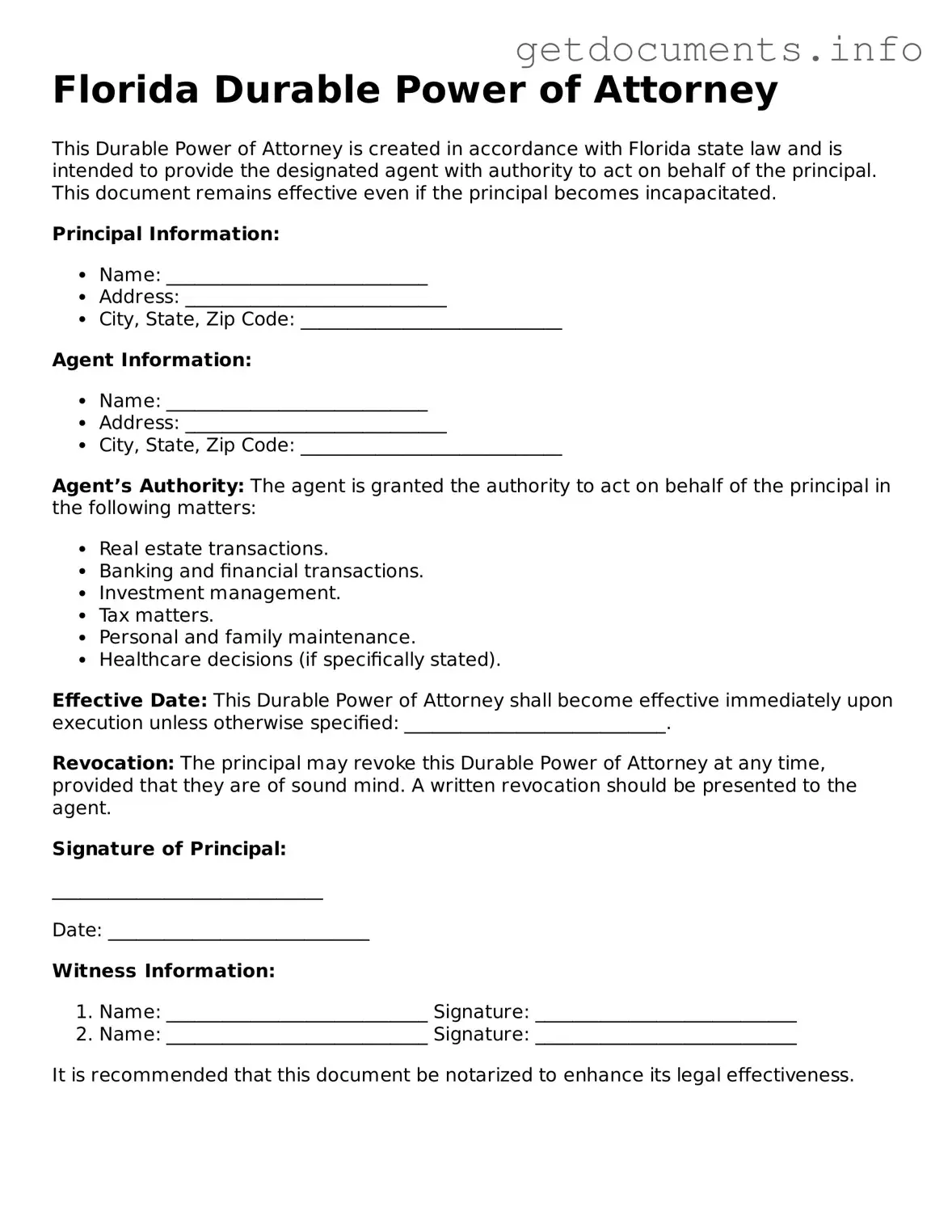Free Durable Power of Attorney Template for Florida
A Florida Durable Power of Attorney form is a legal document that allows an individual to designate someone else to manage their financial and legal affairs if they become incapacitated. This form remains effective even if the person who created it loses the ability to make decisions. To ensure your wishes are honored, consider filling out the form by clicking the button below.
Access Durable Power of Attorney Editor

Free Durable Power of Attorney Template for Florida
Access Durable Power of Attorney Editor
Got places to be? Complete the form fast
Fill out Durable Power of Attorney online and avoid printing or scanning.
Access Durable Power of Attorney Editor
or
⇩ PDF File
